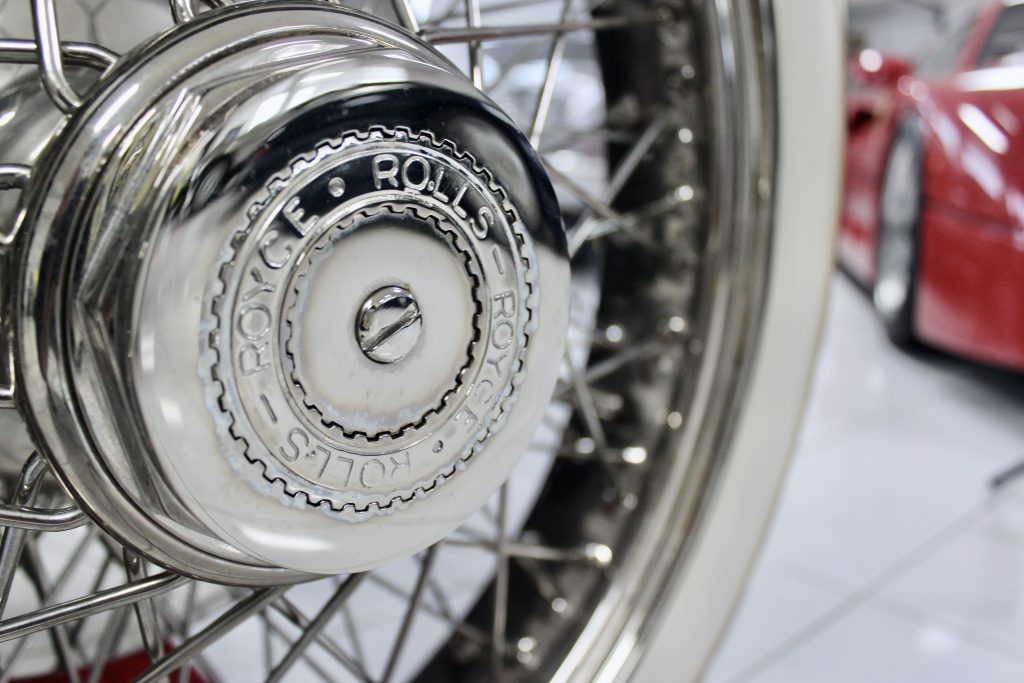The Automotive Dream “One man and his dream had not simply left the world with an engine and four wheels; Henry Ford and his Model T had influenced people's everyday lives - where they lived, how they spent their leisure time, even how they viewed themselves.” - Gary...
The History of Rolls-Royce Through 3 Iconic Features
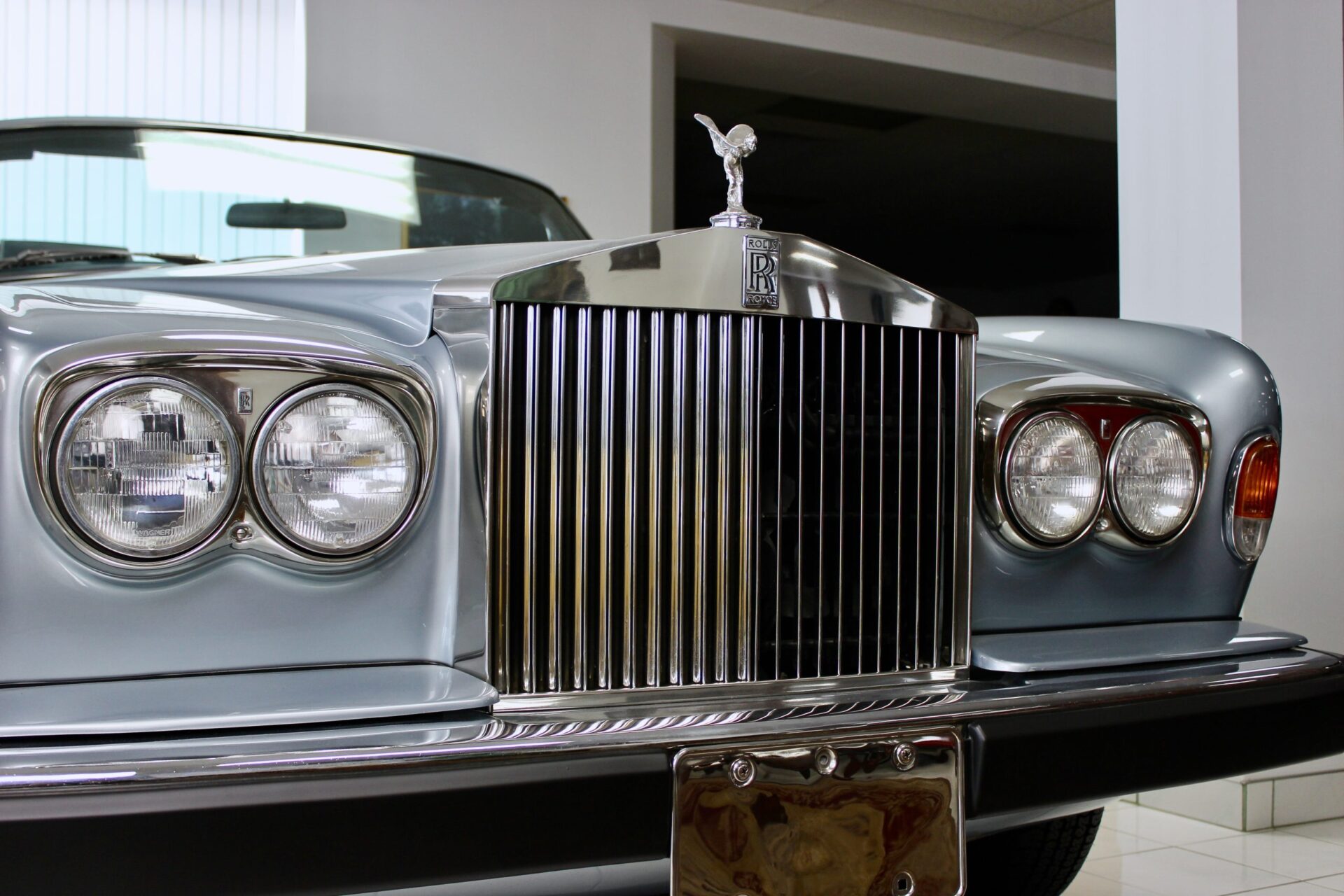
Recent posts
Lagonda 16/80 Special Six 1933
English Touring The car we present to you this week is the Lagonda 16/80 Special Six in the Demers Car Collection. Lagonda was a luxury British car brand that Aston Martin eventually absorbed. Through its association with Aston Martin, it is sometimes hard to remember...
An Introduction to Lagonda
Before Aston Martin “The history of Lagonda cars is synonymous with sophistication, opulence, and groundbreaking performance” - An article for Discovery UK Today, we may recognize the name Lagonda from its association with Aston Martin. Before these two brands...
Cadillac Model A 1903
The Standard of the World “No other American car on the market in the first decade of the century was constructed to higher standards than Cadillac.” - Stephen W. Sears in The Automobile in America Some of you may know that Cadillac has long had the slogan “Standard...
How to Impress Your Friends with Rolls-Royce Facts
From the early cars to today, there is an easy way to identify a Rolls-Royce, and that is by looking at these three iconic features: The double Rs, the “Spirit of Ecstasy” mascot and the Pantheon-shaped grille. Rolls-Royce is one of the most iconic car brands and has been for over 100 years. By being able to identify these key features, and learning what they represent, you get an overview of the history of the brand that is widely considered to produce the best cars in the world.
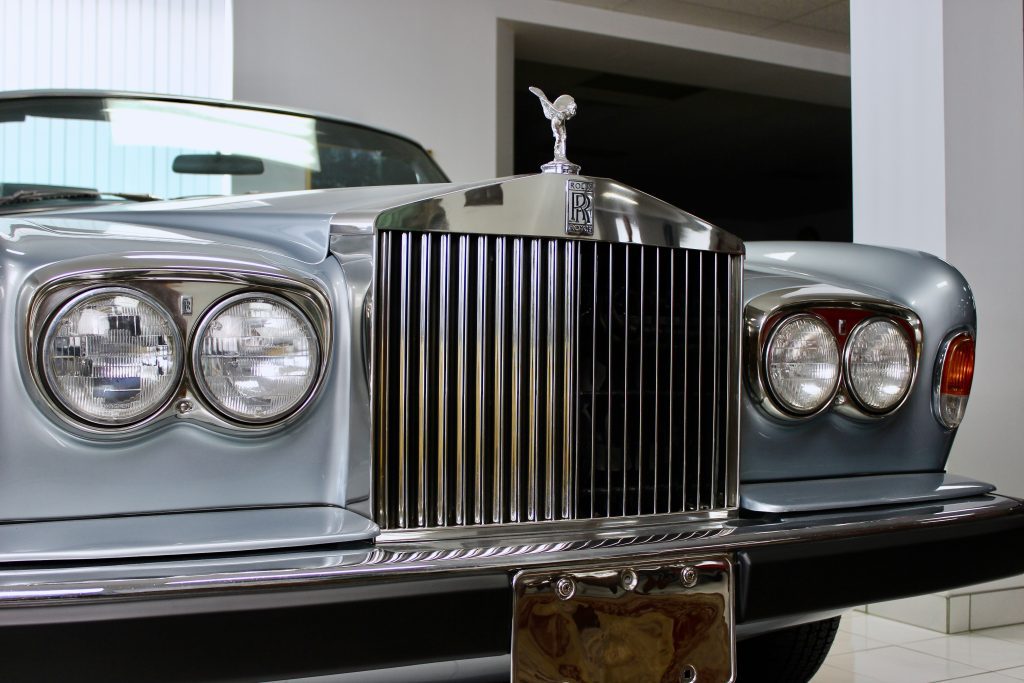
The Double Rs and the Hyphen that Joins Them
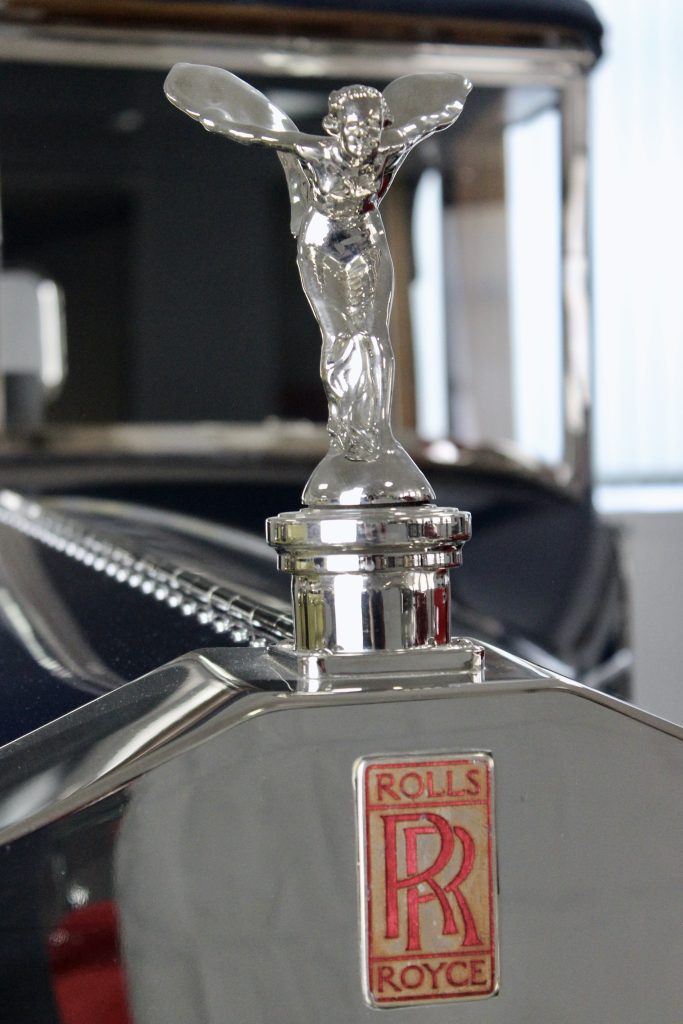
The brand’s logo, the double Rs are the initials of Frederick Henry Royce and Charles Stewart Rolls, the two men credited with the creation of the brand. F. H. Royce was a brilliant mechanical engineer who decided to build his own cars around 1903 because he was dissatisfied with what was on the market at that time. C. S. Rolls, a wealthy motoring enthusiast and foreign car dealer, was an early buyer of a Royce car. Impressed by the quality of said car, Rolls partnered with Royce in 1904 to form what grew to become one of the most notorious car brands: Rolls-Royce Motor Cars.
Unfortunately, Rolls died in 1910, and Royce took a step back from the company due to health concerns around the same time, but the brand continued to flourish under the supervision of Claude Johnson. Rolls-Royce’s managing director, Johnson is often referred to as being the hyphen between the two Rs as his managerial skills greatly influenced the success of the brand.
Interestingly, the double R logo used to be red. Some believe that the color changed to black in 1933 to honor Royce’s tragic death. Others claim that the shift was purely an aesthetic decision and that the timing was coincidental.
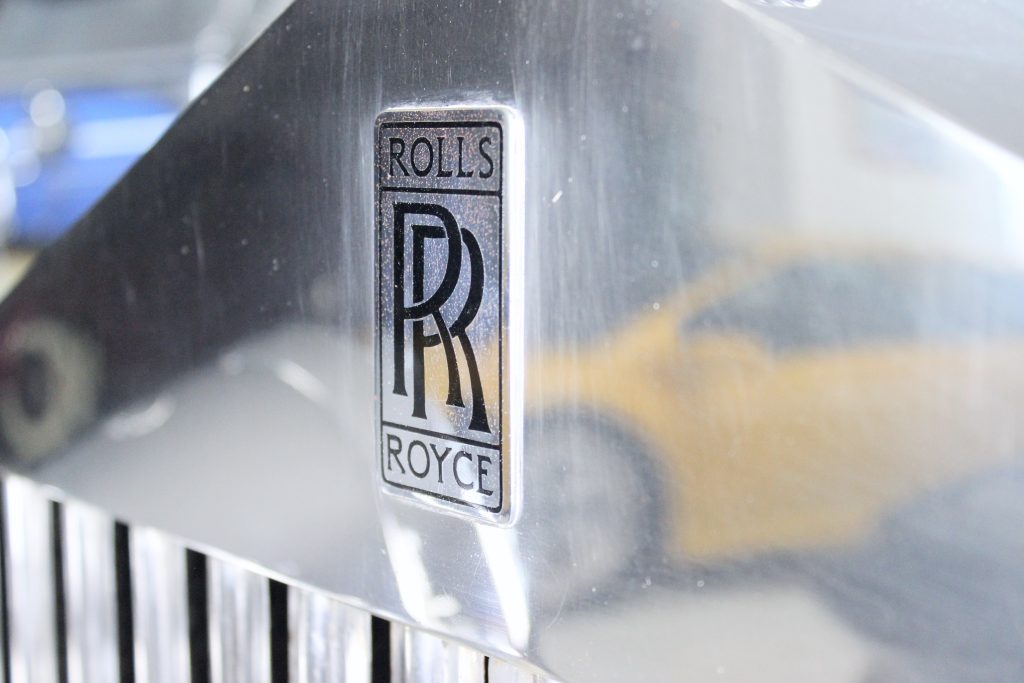
The Spirit of Ecstasy
Another easily recognizable feature of any Rolls-Royce is its mascot the “Spirit of Ecstasy” also sometimes referred to as the “Flying Lady.” Sculptor Charles Sykes created the first Spirit of Ecstasy using actress and secretary Eleanor Thornton as his muse. The feminine figure leaning into the wind reminds us of the feeling one gets at the racing track and the freedom, excitement and speed that come with it: the feelings of ecstasy. Rolls-Royce’s website claims that this mascot is the “embodiment of speed and grace” and that the story of its origin sheds light on the rebellious spirit of innovation that powered the success of the brand. Interestingly, it is reported that Royce never wanted the cars he drove to have this mascot and Rolls died before seeing it.
From 1911 onwards, all Rolls-Royce cars boast it. Before standardization, each mascot was cast individually. In the Demers Car Collection, we can find many different renderings of this famous icon in all kinds of different sizes and even different metals.
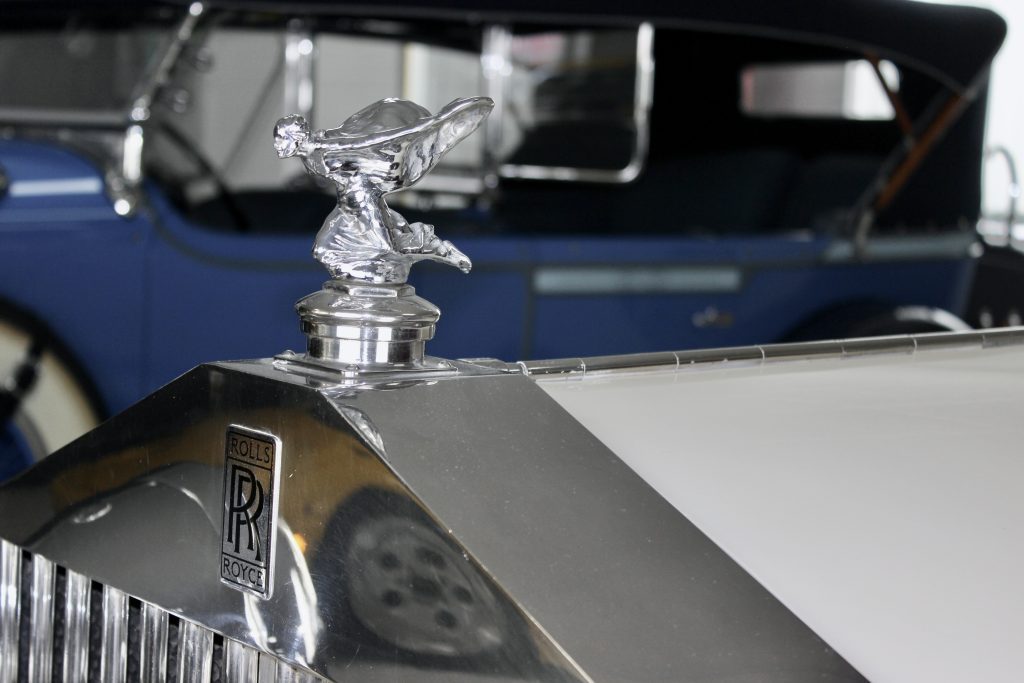
An Imposing Grille
Rolls-Royce’s grille, or radiator shell, is modeled after the shape of a Roman Pantheon. The architecture of the Pantheon, like the design of the grille, uses an optical illusion to create the semblance of perfect symmetry. The grille, although less obvious than the double Rs and the mascot to the non-connoisseur eye, is as distinctive and significant and an icon on its own. Before producing coaches in-house, like many early cars, Rolls-Royces were first produced in chassis form to be dressed by coachbuilders to the demands of the buyer. However, every Rolls-Royce chassis came with the characteristic grille, making the finished cars easily recognizable. The distinctive grille inspired so much respect and class that other car manufacturers have tried to adopt it in order to elevate their cars by association. Although the grille’s shape has evolved, it remains iconic to this day.
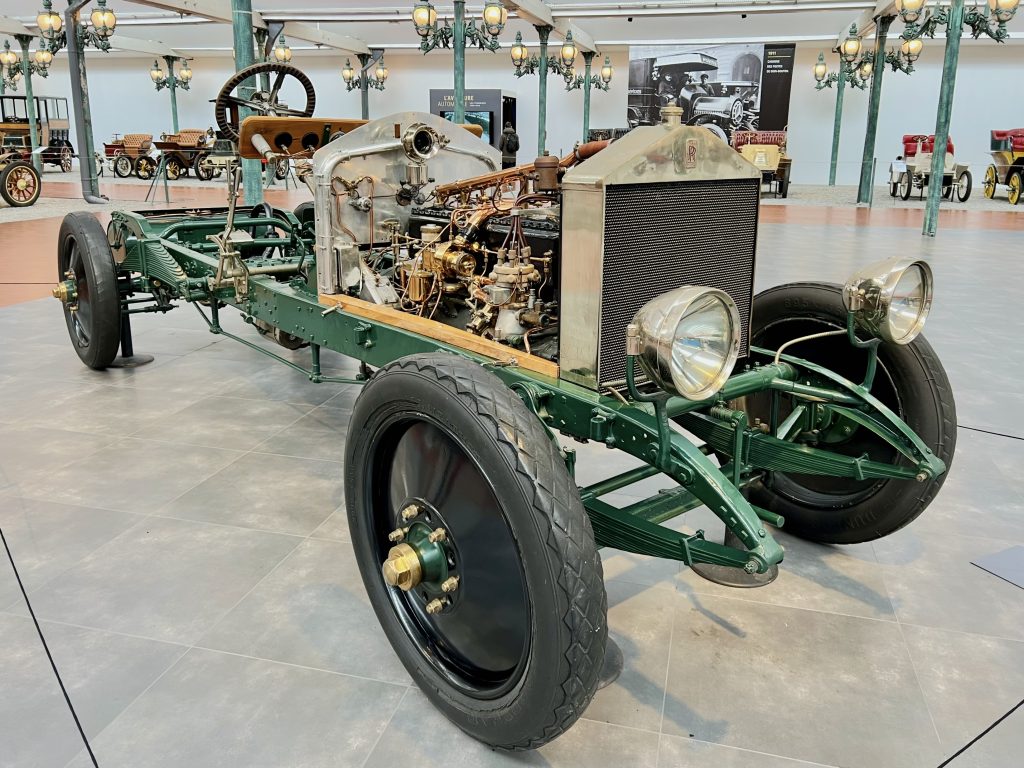
What Now?
One cannot talk about the history of the automobile without recognizing the important impact that Rolls-Royce has had. It consistently and from the beginning produced some of the world’s best cars. It maintained an almost unachievable prestige that seems ever-lasting. It has long been the standard to which every luxury car brand has compared themselves to, the top-dog to beat.
Understanding the meaning and history behind these symbols gives us a glimpse of what made this possible. While many brands have failed, Rolls-Royce is still going strong. To have a more in-debt history of the brand, go to the Rolls-Royce official website, because there is much, much more that can be said. Don’t miss next week’s blog where we introduce you to one of the many Rolls-Royces in the Demers Car Collection!
